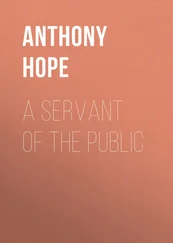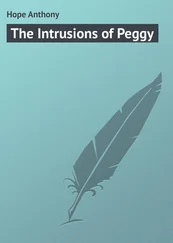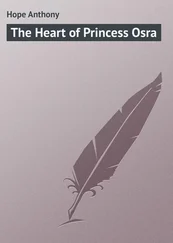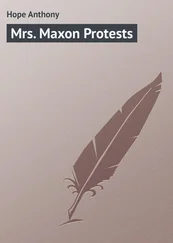Anthony Hope - A Change of Air
Здесь есть возможность читать онлайн «Anthony Hope - A Change of Air» — ознакомительный отрывок электронной книги совершенно бесплатно, а после прочтения отрывка купить полную версию. В некоторых случаях можно слушать аудио, скачать через торрент в формате fb2 и присутствует краткое содержание. Жанр: foreign_prose, на английском языке. Описание произведения, (предисловие) а так же отзывы посетителей доступны на портале библиотеки ЛибКат.
- Название:A Change of Air
- Автор:
- Жанр:
- Год:неизвестен
- ISBN:нет данных
- Рейтинг книги:4 / 5. Голосов: 1
-
Избранное:Добавить в избранное
- Отзывы:
-
Ваша оценка:
- 80
- 1
- 2
- 3
- 4
- 5
A Change of Air: краткое содержание, описание и аннотация
Предлагаем к чтению аннотацию, описание, краткое содержание или предисловие (зависит от того, что написал сам автор книги «A Change of Air»). Если вы не нашли необходимую информацию о книге — напишите в комментариях, мы постараемся отыскать её.
A Change of Air — читать онлайн ознакомительный отрывок
Ниже представлен текст книги, разбитый по страницам. Система сохранения места последней прочитанной страницы, позволяет с удобством читать онлайн бесплатно книгу «A Change of Air», без необходимости каждый раз заново искать на чём Вы остановились. Поставьте закладку, и сможете в любой момент перейти на страницу, на которой закончили чтение.
Интервал:
Закладка:
The twenty lines were written, though they were never considered one of his masterpieces, then Dale rose with a sigh of relief.
"Now for lunch, and then I'm going to return Mr. Delane's call."
"I thought we were to ride," said Nellie disappointedly.
"Well, won't you come?"
"Don't be absurd!"
"Mightn't she come, Phil?"
"Mrs. Delane has not called, has she?" inquired Philip, as though for information.
"Of course I shan't go, Dale. You must go alone."
"What a nuisance! I shall have to walk. I daren't trust myself to that animal alone."
After luncheon he started, walking by the same way by which Mr. Delane had come.
He reached the lodge of the Grange; a courtesying child held open the gate, and he passed along under the immemorial elms, returning a cheery good-day to the gardeners, who paused in their work to touch their hats with friendly deference. The deference was wrong, of course, but the friendliness pleased him, and even the deference seemed somehow in keeping with the elms and with the sturdy old red-brick mansion, with its coat of arms and defiant Norman motto over the principal door. Littlehill was a pleasant house, but it had none of the ancient dignity of Dirkham, and Dale's quick brain was suddenly struck with a new understanding of how such places bred the men they did. He had had a fancy for a stay in the country; it would amuse him, he thought, to study country life; that was the meaning of his coming to Littlehill. Well, Dirkham summed up one side of country life, and he would be glad to study it.
Mr. Delane was not at home – he had gone to Petty Sessions; and Dale, with regret, for he wanted to see the inside of the house, left his name – as usual he had forgotten to bring a card – and turned away. As he turned, a pony carriage drew up and a girl jumped out. Dale drew back to let her pass, raising his hat. The servant said a word to her, and when he had gone some ten or fifteen yards, he heard his name called.
"Oh, Mr. Bannister, do come in! I expect papa back every minute, and he will be so sorry to miss you. Mamma is up in London; but I hope you'll come in."
Dale had no idea of refusing the invitation given so cordially. He had been sorry to go away before, and the sight of Janet Delane made him more reluctant still. He followed her into the oak-paneled hall, hung with pictures of dead Delanes and furnished with couches and easy-chairs.
"Well," she said, after tea was brought, "and what do you think of us?"
"I have not seen very much of you yet."
"As far as you have gone? And be candid."
"You are very restful."
She made a little grimace.
"You mean very slow?"
"Indeed I don't! I think you very interesting."
"You find us interesting, but slow. Yes, you meant that, Mr. Bannister, and it's not kind."
"Have your revenge by telling me what you think of me."
"Oh, we find you interesting, too. We're all talking about you."
"And slow?"
"No, certainly not slow," she said, with a smile and a glance: the glance should be described, if it were describable, but it was not.
Dale, however, understood it, for he replied, laughing:
"They've been prejudicing you against me."
"I don't despair of you. I think you may be reformed. But I'm afraid you're very bad just now."
"Why do you think that? From what your father said?"
"Partly. Partly also because Colonel Smith and Tora – do you know them? – are so enthusiastic about you."
"Is that a bad sign?"
"Terrible. They are quite revolutionary. So are you, aren't you?"
"Not in private life."
"But of course," she asked, with serious eyes, "you believe what you write?"
"Well, I do; but you pay writers a compliment by saying 'of course.'"
"Oh, I hope not! Anything is better than insincerity."
"Even my opinions?"
"Yes. Opinions may be changed, but not natures, you know."
She was still looking at him with serious, inquiring eyes. The eyes were very fine eyes. Perhaps that was the reason why Dale thought the last remark so excellent. He said nothing, and she went on:
"People who are clever and – and great, you know, ought to be so careful that they are right, oughtn't they?"
"Oh, a rhymer rhymes as the fit takes him," answered he, with affected modesty.
"I wouldn't believe that of you. You wouldn't misuse your powers like that."
"You have read my poetry?"
"Some of it." She paused and added, with a little blush for her companion: "There was some papa would not let me read."
A man may not unreasonably write what a young girl's father may very reasonably not like her to read. Nevertheless, Dale Bannister felt rather uncomfortable.
"Those were the shocking political ones, I suppose?" he asked.
"No; I read most of those. These were against religion and – "
"Well?"
"Morality, papa said," she answered, with the same grave look of inquiry.
Dale rose and held out his hand, saying petulantly:
"Good-by, Miss Delane. You evidently don't think me fit to enter your house."
"Oh, now I have made you angry. I have no right to speak about it, and, of course, I know nothing about it. Only – "
"Only what?"
"Some things are right and some are wrong, aren't they?"
"Oh, granted – if we could only agree which were which."
"As to some we have been told. And I don't think that about you at all – I really don't. Do wait till papa comes."
Dale sat down again. He had had his lecture; experience told him that a lecture from such lecturers is tolerably often followed by a petting, and the pettings were worth the lectures. In this instance he was disappointed. Janet did not pet him, though she displayed much friendliness, and he took his leave (for the Squire did not appear) feeling somewhat put out.
Approbation and applause were dear to this man, who seemed to spend his energies in courting blame and distrust; whatever people thought of his writings, he wished them to be fascinated by him. He was not sure that he had fascinated Miss Delane.
"I should like to see more of her," he thought. "She's rather an odd girl."
CHAPTER VI.
Littlehill Goes into Society
Mr. Delane's late return from his public duties was attributable simply to Colonel Smith's obstinacy. He and the Colonel sat together on the bench, and very grievously did they quarrel over the case of a man who had been caught in the possession of the body of a fresh-killed hare. They differed first as to the policy of the law, secondly as to its application, thirdly as to its vindication; and when the Vicar of Denborough, who was a county justice and present with them, sided with the Squire on all these points, the Colonel angrily denounced the reverend gentleman as a disgrace, not only to the judicial bench, but even to his own cloth. All this took time, as did also the Colonel's cross-examination of the constable in charge of the case, and it was evening before the dispute was ended, and a fine imposed. The Colonel paid the fine, and thus everyone, including the law and the prisoner, was in the end satisfied.
Mr. Delane and the Colonel, widely and fiercely as they differed on every subject under the sun, were very good friends, and they rode home together in the dusk of a September evening, for their roads lay the same way for some distance. Presently they fell in with Sir Harry Fulmer, who had been to see Dale Bannister, and, in his absence, had spent the afternoon with Nellie Fane and Philip Hume.
"Hume's quite a good fellow," he declared; "quiet, you know, and rather sarcastic, but quite a gentleman. And Miss Fane – I say, have you seen her, Colonel?"
"By the way, who is Miss Fane?" asked the Squire.
"Oh, she acts, or sings, or something. Awfully jolly girl, and uncommon pretty. Don't you think so, Squire?"
Читать дальшеИнтервал:
Закладка:
Похожие книги на «A Change of Air»
Представляем Вашему вниманию похожие книги на «A Change of Air» списком для выбора. Мы отобрали схожую по названию и смыслу литературу в надежде предоставить читателям больше вариантов отыскать новые, интересные, ещё непрочитанные произведения.
Обсуждение, отзывы о книге «A Change of Air» и просто собственные мнения читателей. Оставьте ваши комментарии, напишите, что Вы думаете о произведении, его смысле или главных героях. Укажите что конкретно понравилось, а что нет, и почему Вы так считаете.












